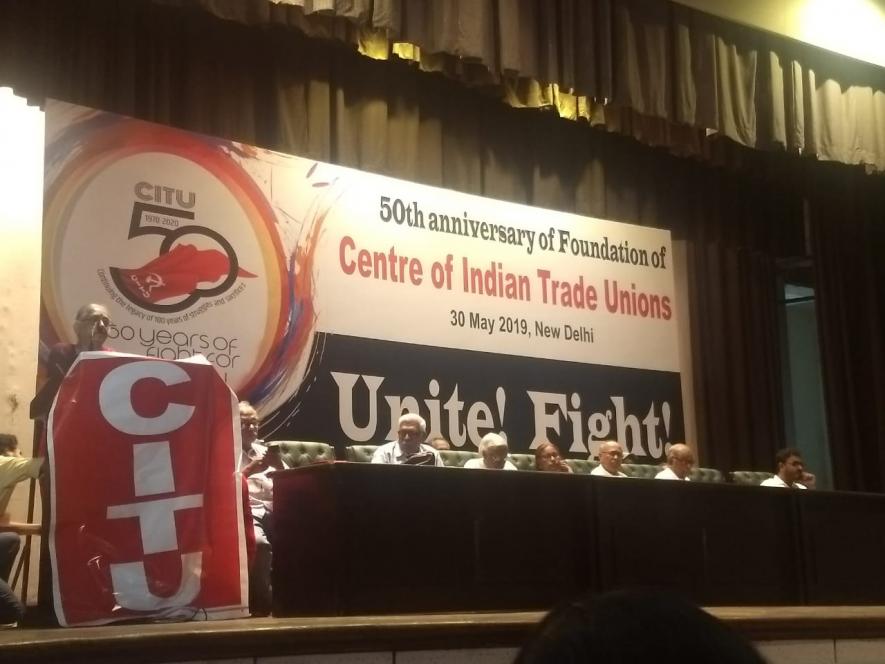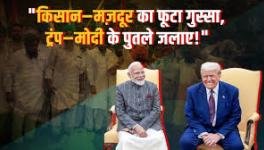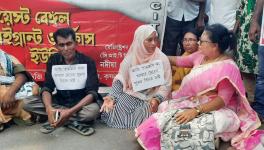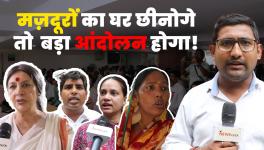‘Class Orientation of Workers’ Movement Has to be Strengthened’

It’s been 50 years since the Centre of Indian Trade Unions (CITU) was formed — as a section of militant trade unionists broke away from the only existing central trade union, the All India Trade Union Congress (AITUC), which they said had turned to the lines of “class compromise and class collaboration”, instead of “class struggle”.
On May 30, 1970, at the end of a four-day conference at Kolkata’s Ranji Stadium, renamed Lenin Nagar (it was the centenary of the birth of Lenin), CITU was born.
And on May 30 this year, CITU commemorated its golden jubilee — and a hundred years of workers’ organised struggles in the country (the first central trade union AITUC was founded in 1920) — with a programme at Mavalankar Hall in New Delhi. More than 500 people — trade unionists, workers, peasant leaders, activists — filled the large auditorium.
The celebration opened with a performance by Left street theatre group, Jana Natya Manch, who staged their play, Machine, on mechanisation and the resultant exploitation of industrial labour.
The day also saw leaders of CITU — president K Hemalatha, general secretary Tapan Sen, former president AK Padmanabhan — and the All India Kisan Sabha (AIKS) general secretary Hannan Mollah, addressing the gathering.
Marking the occasion, CITU also released special editions of Karl Marx's 'Wage Labour and Capital' and 'Value Price and Profit' — two important introductory texts on Marxist political economy.
Also read: India: 50 Years of Revolutionary Trade Union Movement
The speakers talked about the history of CITU and trade union struggles in India since before Independence — as well as on the tasks ahead for workers, peasants and trade unions in the country.
Hemalatha underlined that the message going forward was the same as that put forward during the 14th conference of CITU at Kannur in Kerala in 2013 — to reach the unreached. That is, all unions affiliated to CITU as well as other central trade unions must work to reach out to all the unreached workers in the country — whether they are already unionised or still not unionised. She said the unions’ foremost task was to continue raising the class consciousness of workers through all kinds of education.
AIKS general secretary Hannan Mollah talked about the vital relationship between workers and farmers as well as the importance of strengthening worker-peasant unity. Noting that the AIKS was also in its 85th year, he talked about the current agricultural crisis in India and the mounting distress of farmers. He said unity and struggle was the only way forward as farmers and workers are faced with the worst attack of capitalism they have seen.
CITU general secretary Tapan Sen talked some more about the history of the struggles waged by CITU in the past as well as the role played by the common workers in the freedom struggle. He said “struggle” was the tradition of workers, and the task for the next one year was to consolidate and unify all people on the ground amid divisive forces. He emphasised “unity not for the sake of unity, but unity for struggle”.
Also read: #WorkersStrikeBack: Historic All India Strike Receives Massive Response
Former CITU president AK Padmanabhan, giving a historical overview of CITU and other central trade unions, said the first trade union ever in the country was Madras Labour Union formed in 1918, while the International Labour Organisation (ILO) was founded in 1919. He spoke of the “historical necessity” (in the words of CPI(M) leader and former Bengal chief minister, the late Jyoti Basu) that led to union leaders breaking away from AITUC and forming CITU.
Speaking to Newsclick about the tasks ahead for CITU, Padmanabhan said, “The task given 50 years ago continues. The situation has worsened 1991 onwards. CITU was able to understand, very clearly, the impact that the neoliberal policies would have on the people since the beginning of economic liberalisation.”
“But it is to the credit of the working class of our country that while the new economic policies started being fully implemented since July 199 (though it had begun in the early 1980s itself), but by November — within four months — the first countrywide general strike against these policies was held, on November 23, 1991.” And substantial credit goes to CITU, among other central trade unions, that this first countrywide strike against neoliberal policies came to fruition.
“After this, the central trade unions and other trade unions, national federations, the core of the Left movement stood together and we have conducted 18 general countrywide strikes. And two of them were two-day strikes.”
Also read: Modi Hatao, Mazdoor Bachao, 10 Central Trade Unions Adopt Charter of Demands
Padmanabhan said trade unions have to make workers and the masses understand that we have to fight against certain policies, as the problems we face today are the result of these policies.
“We need to make all workers fit enough to understand who is their friend and who is their enemy, what is in their interest and what is not. The message is, strengthen your unity, irrespective of language, region, religion, caste… unify yourself on the basis of class… the class orientation of the working class movement has to be strengthened, and ideologically we should work for changing this society into an exploitation-free one. Here, workers, peasants, agricultural workers, students, youth… all the exploited sections have to be brought forward. In that, a leading role has to be taken by the working class movement. And CITU is pledging itself, on this occasion of the golden jubilee, to do that. This flag of struggle, raised in Kolkata 50 years ago, will be carried forward. And the struggles will be successfully completed,” he said.
Get the latest reports & analysis with people's perspective on Protests, movements & deep analytical videos, discussions of the current affairs in your Telegram app. Subscribe to NewsClick's Telegram channel & get Real-Time updates on stories, as they get published on our website.
























